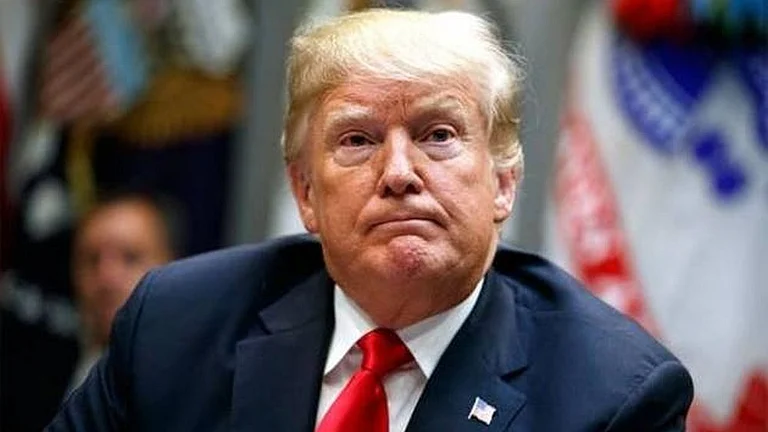US President Donald Trump announced reciprocal tariff on April 2, declaring a 26% levy on all goods imported from India. This move has raised concerns over key agricultural export such as seafood and rice. Experts believe that the effect on India’s exports may be limited, particularly in comparison to the higher duties imposed on the regional competitors.
How Trump's 26% Reciprocal Tariff Will Affect Indian Farm Exports? Explained
President Trump’s 26% reciprocal tariff on Indian goods raises concerns over agricultural exports, but experts say India retains a competitive edge over rivals with higher tariffs
Despite the 26% tariff, India still has a relative advantage compared to its competitors. China faces a higher reciprocal tariff of 34%, which creates an 8% differential advantage for the Indian exporters. Other competitors, according to the White House, face even steeper barriers, with Vietnam at 46%, Bangladesh at 37%, Thailand at 36% and Indonesia at 32%.
Ashok Gulati, former Chairman of the Comission for Agricultural Costs and Prices (CACP) told PTI that India’s relative tariff advantage coupled with shrimp’s small share in the overall US food expenditure means the demand is unlikely to shrink significantly.
Commenting on the Indian shrimp production, General Secretary of Shrimp Feed Manufacturers Association of India, Gulrej Alam told PTI that there will be a minor setback in the short term because of a lower tariff of 10% imposed on Ecuador, which is also one of the major shrimp exporters to America, adding that this will be a cause of concern for Indian shrimp production. Ecuador also has a logistical advantage as it is located close to the US. However, Alam outlined that India has bulk handling capacity and better packing quality.
In case of rice exports, while current US tariffs are 9%, India maintains an edge against Vietnam and Thailand despite the 26% increase.
Vijay Sethia, a Former President of the All India Rice Exporters Association told PTI that India exports 250,000 to 300,000 tonnes of rice annually to the US. “The 26 per cent tariff on all varieties of rice will definitely slow down our exports in the short term but will capture its space in the long term,” Sethia said, adding that the American consumers will eventually be affected by the duty hike.
Indian Tariffs Criticised
Meanwhile India’s own tariffs are under scrutiny. The US Trade Representative’s (USTR) annual report, released on March 31, highlighted that India’s high tariffs is a major trade barried across sectors.
The report stated that India imposes tariff of up to 150% on alcoholic beverages, vegetable oils (45%), apples, corn and natural rubber (70%) also face steep duties. Agricultural goods including coffee, raisins, walnuts (100%) are among most heavily taxed.
"High tariff rates present a significant barrier to US agricultural exports, particularly in processed foods, poultry, potatoes, citrus, almonds, and fast-food ingredients," the report noted.

